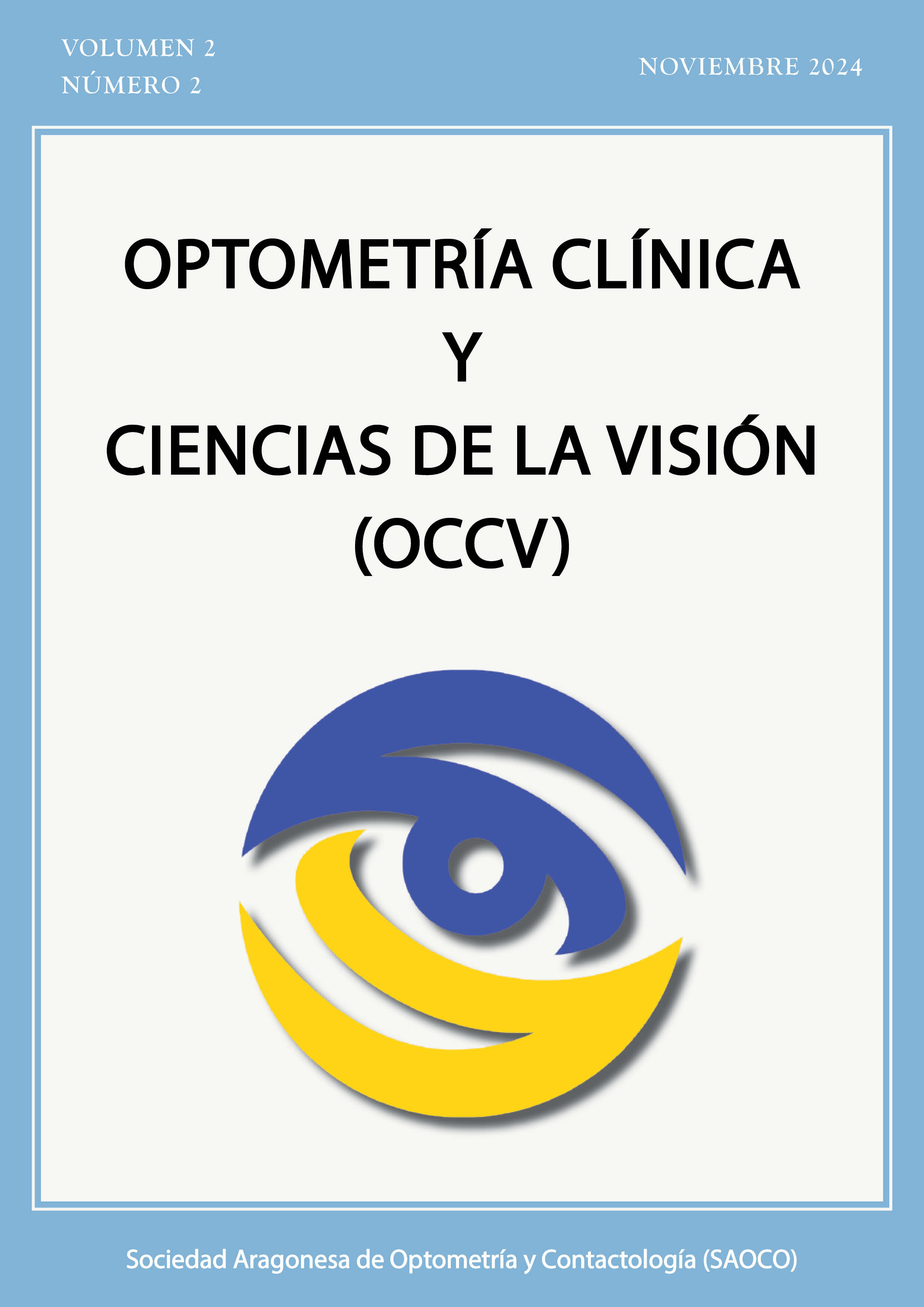Disfunciones Visuales y Oculares en la Prematuridad
Palabras clave:
Prematuridad, Errores refractivos, Estrabismo, Disfunción visual, Retinopatía, AmbliopíaResumen
Relevancia: En este estudio se recaba toda la investigación realizada en los últimos años sobre la búsqueda de posibles disfunciones visuales relacionadas con la prematuridad (un factor de riesgo de alta prevalencia) para poder trabajar en un diagnóstico precoz y en el seguimiento y tratamiento más certero para estos pacientes.
Resumen: En esta revisión bibliográfica se ha analizado un total de 198 estudios de investigación publicados en los últimos 10 años, de los cuales se han incluido 10 que cumplen pautas de evidencia científica que se explican en este trabajo. Tras la búsqueda con ciertos criterios, los resultados muestran un porcentaje alto de Retinopatía del prematuro como patología más prevalente en la prematuridad, seguida de un alto índice de errores refractivos, como el astigmatismo, la hipermetropía y la miopía y una incidencia mayor de estrabismo, nistagmos y ambliopía. Existen alteraciones significativas en áreas cerebrales implicadas en el sistema visual que intervienen en procesos como el reconocimiento y la memoria visual, así como en el procesamiento motor, generando alteración en la motilidad ocular y la estereopsis. Además, hay evidencia de un retraso en el proceso de emetropización y en el desarrollo del sistema acomodativo/vergencial, relacionado también con la prematuridad. Estos resultados son avalados por la literatura consultada y cuando se comparan unos con otros. Se ha encontrado controversia en relación a otros estudios, sobre todo en el caso del estrabismo, la ambliopía y resultados no significativos en medidas oculares como el espesor del vítreo y de la cámara anterior. Estos hallazgos descubiertos relacionados con el nacimiento prematuro muestran la importancia de las revisiones visuales en la población pediátrica desde una pronta edad, para realizar un diagnóstico y tratamiento precoz y mejorar la calidad de vida de estos pacientes.
Referencias
RAE. 23.7 en línea. 2014 [cited 2024 Mar 14]. Diccionario de la Lengua Española.
OMS. Nacimientos Prematuros. 2023 [cited 2024 Mar 14]. Organización Mundial de la Salud.
Cerisola A, Baltar F. Complicaciones neurológicas de la prematuridad Artículo especial-Revisión ISSN. Vol. 83, MEDICINA (Buenos Aires). 2023.
Katz X. Prematuridad y visión. Revista médica Clínica Las Condes. 2010;21:978–83.
Zierden HC, Shapiro RL, DeLong K, Carter DM, Ensign LM. Next generation strategies for preventing preterm birth. Vol. 174, Advanced Drug Delivery Reviews. Elsevier B.V.; 2021. p. 190–209.
García Peláez MI, Arteaga Martínez SM, Flores Peña LG, Núñez Castruita A, Martínez Burckhardt RJ, Amador Hernández G. Sección 2. Organogénesis. In: Arteaga MArtínez SM, García Peláez MI, editors. Embriología humana y biología del desarrollo. 3rd ed. México: Editorial médica Panamericana; 2021. p. 475–84.
Verdijk RM, Herwig-Carl MC. Fetal and Neonatal Eye Pathology. Fetal and Neonatal Eye Pathology. Springer International Publishing; 2020. 1–177 p.
García-Feijoó J, Pablo-Júlvez LE. Embriología. Desarrollo del globo ocular y los anexos. In: García-Feijoo J, Pablo-Júlvez L.E, editors. Manual de Oftalmología. Barcelona: Elsevier; 2012. p. 4–721.
Carlson BM. Òrganos de los sentidos. In: Peña Melian ÁL, Viejo Tirado F, Carlson BM, editors. Embriología humana y biología del desarrollo. 4th ed. Barcelona: Elsevier; 2009. p. 255–78.
Ortueta-Olartecoechea A, Torres-Peña JL, Muñoz-Gallego A, Torres-Valdivieso MJ, Vázquez-Román S, De la Cruz J, et al. Retinal ganglion cell complex thickness at school-age, prematurity and neonatal stressors. Acta Ophthalmol. 2022 Sep 1;100(6):e1253–63.
Liu CG, Cao JK, Wang YH, Wang D, Han T, Li QP, et al. A bibliometric analysis and visualization of retinopathy of prematurity from 2001 to 2021. 2023.
Balasubramanian S, Beckmann J, Mehta H, Sadda SVR, Chanwimol K, Nassisi M, et al. Relationship between Retinal Thickness Profiles and Visual Outcomes in Young Adults Born Extremely Preterm: The EPICure@19 Study. Ophthalmology. 2019 Jan 1;126(1):107–12.
Wang Y, Pi LH, Zhao RL, Zhu XH, Ke N. Refractive status and optical components of premature babies with or without retinopathy of prematurity at 7 years old. Transl Pediatr. 2020 Apr 1;9(2):108–16.
Fieß A, Dautzenberg K, Gißler S, Mildenberger E, Urschitz MS, Elflein HM, et al. Prevalence of strabismus and risk factors in adults born preterm with and without retinopathy of prematurity: results from the Gutenberg Prematurity Eye study. British Journal of Ophthalmology. 2024;
Comberiati AM, Graziani M, Malvasi M, Trovato Battagliola E, Compagno S, Malvasi V, et al. Effectiveness of diagnosis and early treatment of ocular motili-ty alterations in premature infants Observational study. Clin Ter. 2023;174(1):48–52.
Jain S, Sim PY, Beckmann J, Ni Y, Uddin N, Unwin B, et al. Functional Ophthalmic Factors Associated with Extreme Prematurity in Young Adults. JAMA Netw Open. 2022 Jan 28;5(1):E2145702.
Xie X, Wang Y, Zhao R, Yang J, Zhu X, Ouyang L, et al. Refractive status and optical components in premature infants with and without retinopathy of prematurity: A 4- to 5-year cohort study. Front Pediatr. 2022 Nov 17;10.
Mocanu V, Horhat R. Prevalence and risk factors of amblyopia among refractive errors in an Eastern European population. Medicina (Lithuania). 2018 Mar 1;54(1).
Zhou L, Zhao Y, Liu X, Kuang W, Zhu H, Dai J, et al. Brain gray and white matter abnormalities in preterm-born adolescents: A meta-analysis of voxel-based morphometry studies. PLoS One. 2018 Oct 1;13(10).
Zhu X, Zhao R, Wang Y, Ouyang L, Yang J, Li Y, et al. Refractive state and optical compositions of preterm children with and without retinopathy of prematurity in the first 6 years of life. Medicine (United States). 2017 Nov 1;96(45).
Fledelius HC, Bangsgaard R, Slidsborg C, Lacour M. Refraction and visual acuity in a national Danish cohort of 4-year-old children of extremely preterm delivery. Acta Ophthalmol. 2015 Jun 1;93(4):330–8.
Horwood AM, Toor SS, Riddell PM. Convergence and accommodation development is preprogrammed in premature infants. Invest Ophthalmol Vis Sci. 2015;56(9):5370–80.
Fieß A, Grabitz SD, Mildenberger E, Urschitz MS, Fauer A, Hampel U, et al. A lower birth weight percentile is associated with central corneal thickness thinning: Results from the Gutenberg Prematurity Eye Study (GPES). J Optom. 2023 Apr 1;16(2):143–50.
Deng Y, Yu CH, Ma YT, Yang Y, Peng XW, Liao YJ, et al. Analysis of the clinical characteristics and refraction state in premature infants: A 10-year retrospective analysis. Int J Ophthalmol. 2019;12(4):621–6.
Al Oum M, Donati S, Cerri L, Agosti M, Azzolini C. Ocular alignment and refraction in preterm children at 1 and 6 years old. Clinical Ophthalmology. 2014 Jul 2;8:1263–8.
Rasoulinejad S, Pourdad P, Pourabdollah A, Arzani A, Geraili Z, Roshan H. Ophthalmologic outcome of premature infants with or without retinopathy of prematurity at 5-6 years of age. J Family Med Prim Care. 2020;9(9):4582.
Yang Z, Lu Z, Shen Y, Chu T, Pan X, Wang C, et al. Prevalence of and factors associated with astigmatism in preschool children in Wuxi City, China. BMC Ophthalmol. 2022 Dec 1;22(1).
Merchán S, Merchán G, Dueñas M. Influence of prematurity on the “emmetropization” process. Elsevier España SLU. 2014;83–9.
Petriçli İS, Kara C, Arman A. Is being small for gestational age a risk factor for strabismus and refractive errors at 3 years of age? Turkish Journal of Pediatrics. 2020;62(6):1049–57.
Pétursdóttir D, Holmström G, Larsson E. Refraction and its development in young adults born prematurely and screened for retinopathy of prematurity. Acta Ophthalmol. 2022 Mar 1;100(2):189–95.
Leung MPS, Thompson B, Black J, Dai S, Alsweiler JM. The effects of preterm birth on visual development. Vol. 101, Clinical and Experimental Optometry. Blackwell Publishing Ltd; 2018. p. 4–12.
Archivos adicionales
Publicado
Número
Sección
Categorías
Licencia
Derechos de autor 2024 Optometría Clínica y Ciencias de la Visión

Esta obra está bajo una licencia internacional Creative Commons Atribución-NoComercial 4.0.



